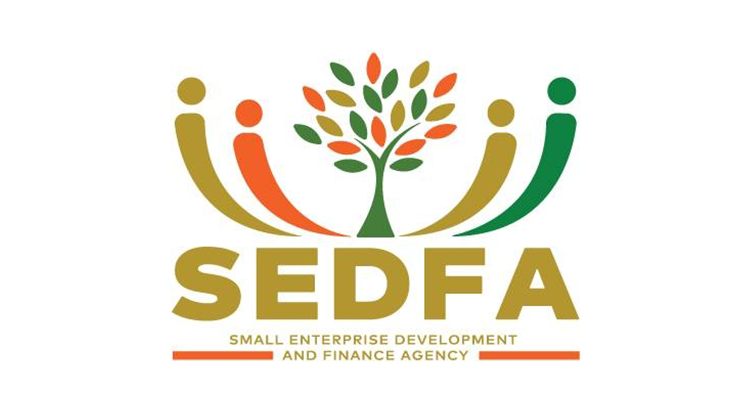Remarks by Minister of Small Business Development, Ms Lindiwe Zulu, on the occasion of the Smart Procurement Conference, Cape Town, 07 March 2017
Programme Director,
Dr Rob Davies, Minister of Trade and Industry,
Alderman Ian Neilson, Executive Deputy Mayor of the City of Cape Town,
Thomas Fofie, Head of Business Advisory Centre, National Board for Small Scale Industry: Ministry of Trade and Industry Ghana,
Olive Kigongo, President, Uganda National Chamber of Commerce & Industry, Uganda,
Gilbert Sebik, Trade Attache, Ghana High Commission,
Dr Nigel MK Chanakira, Chairman, Zimbabwe Investment Authority,
Vuyo T. Dunjwa, Co-Founder & Executive Chairman, Sub-Saharan Africa Chamber of Commerce,
Bernie Van Niekerk, Chief Executive Officer, Commerce Edge,
Corporate companies represented here,
Distinguished guests,
Ladies and gentlemen
I wish to express my profound gratitude for having been invited to this important event and to thank the organisers of the World procurement forum for once again giving me the opportunity to come and address the conference regarding SMME procurement.
I have addressed this conference on two occasions and I still maintain that we need to see transformation in the procurement space. This year’s topic Understanding Procurement and Supply Chain imperatives to grow small businesses in Africa is particularly close to our vision of an integration of value chains within Africa and specifically SADC.
This conference comes at a time when we are beginning to see a change in the procurement landscape in South Africa with the New Procurement Regulations, this was not a white wash for SMME’s, it still leaves the decision to procure from SMME’s in the hands of Accounting officers. This means that the Department and its stakeholders will have their hands full ensuring that this happens.
Some of the true wins are Introduction of Pre-qualification for Tenders, which will then allow SMME’s in certain categories to compete amongst themselves, the subcontracting element whereby SMME’s are brought in to Subcontract and finally the Increase of the Tender Threshold for SMME’s to R50 Million. There is still work to be done to ensure that the regulations favour SMME’s, the Treasury has now enabled Accounting officers to act in favour of SMME’s.
Audit Firm KPMG estimates that the impact of ineffective procurement in Africa is estimated at a staggering USD 31,5 billion – or USD 24,9 billion for Sub-Saharan Africa alone in terms of value leakage. This is mainly as a result of procurement organisations that are struggling with basic issues on the delivery front such as low use of technology, inadequate skills and non-compliance. These issues are more evident in the public sector, though also still exist to different extremities in the private sector.
From a policy perspective, it is very difficult to separate trade and procurement, these are the two most succinctly linked aspects. These aspect link directly to Intra-Africa trade. According to the UN’s recent Economic Report on Africa, more than 80% of Africa’s exports are shipped overseas, mainly to the European Union (EU), China and the US. Intra-Africa trade only accounts for 10-12% of trade on the continent. This is in comparison to the high levels of intra-regional trade recorded in Europe (60%) and Asia (40%).
Many African countries extract and export primary commodities, but rely heavily on imports for manufactured goods. Increasing the production and export levels of manufactured goods will increase the level of intraAfrica trade, many argue that the Customer base in Africa is small, but the real problem is the lack of infrastructure to reach the market.
The World Bank estimates that intra-African trade costs are around 50% higher than in East Asia, and are the highest of intra-regional costs in any developing region. The result of these high costs is that Africa has integrated with the rest of the world faster than with itself. Because of this greater focus on extra-than intra-regional trade, recent export growth in Africa has been driven primarily by commodities, with limited impacts on employment and poverty. This is of particular concern now that traditional markets in Europe and North America are stagnating.
Many of the African states are busy with built programmes, be it for roads or power stations and other critical infrastructure, this is an opportunity for procurement from SMME’s. After all these facts above, this paints a bleak picture of Procurement in Africa one may ask Can Africa trade with Africa? The answer is a resounding Yes, the first challenge is to deal with the trade imbalance, African Countries only sell 20% of what they produce to one another, In Europe, this is 60% and in the US its over 50%, trade amongst African is critical.
Trade blocs such as SADC (Southern African Development Community), EAC (East African Community), ECOWAS (Economic Community of West African States), all promote cross-border trade and are focused on facilitating trade and reducing bureaucracy within the region. However, more needs to be done to connect and encourage the movement of goods, services, people and capital across borders in Africa.
The respective African governments and the private sectors need to continue to work together to create a sustainable and inclusive environment, and work on solutions to make it easier for African businesses to conduct business within their local and regional environment.
The Gem Report, 2016 argues that export experience is essential in that the ability of the firm to successfully manoeuvre within the constraints depends on its embedded knowledge and sustained experience. A firm's experience in a specific industry is a critical variable into measuring firm export success. The more export experience a firm has implies its success in having overcome a number of these obstacles.
There is a huge potential for procurement of food aid in local or regional markets to improve the effectiveness of response to food emergency victims. The paper examines the relevance of local/regional procurement (LRP) to donors and the rationale for using it, reviews LRP’s efficiency relative to in-kind food aid and to local prices in the markets in which it occurs (focusing on Africa).
In conclusion I cannot argue with the findings of this conference that the most critical challenges of doing business in Africa, are finding the rights skills, Practical Business Skills to make business work a, understanding the values and patterns of African consumers and finally reducing the regulatory burden and reducing the cost of doing business in Africa.
This platform should provide an opportunity for various movers and shakers to engage and find common solutions and sell their ideas to policy makers in order to ensure that the landscape changes to favour the development of SMME’s.
The development of Local suppliers in each country is essential, but the development needs to go beyond just one country, there needs to be an initiative that drive a meeting of the ideas from various African states in order to improve partnership and buying from one another.
I thank you.




